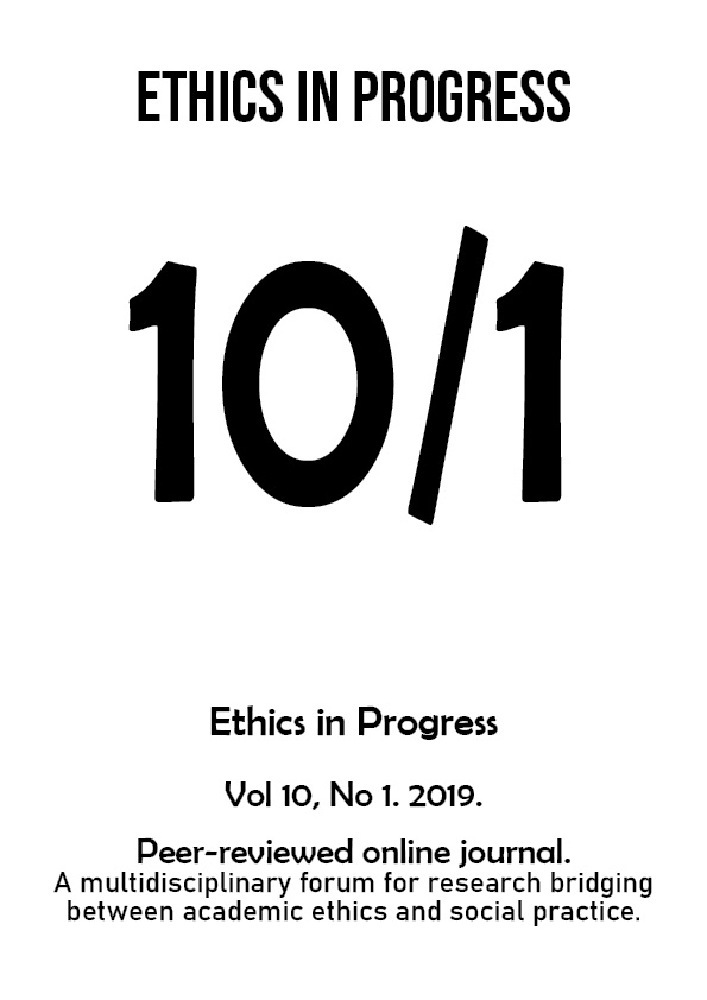Abstract
Democracy is bound to fail if its citizens lack opportunities to develop their moral-democratic competence, that is, their ability to solve conflicts through thinking and discussion, instead of through violence, deceit or bowing down to others. The concept of Discussion Theatre has been designed to provide such an learning opportunity. In contrast to traditional theatre, there is no above and below, no division between actors and listeners – all are participants. The Discussion Theatre is the “public” version of the Konstanz Method of Dilemma Discussion (KMDD), which is been successfully used in institutions of education in many countries for over two decades.
References
Althof W. 2015. “Just Community Sources and Transformations: A Conceptual Archeology of Kohlberg’s Approach to Moral and Democratic Education,” in B. Zizek, D. Garz & E. Nowak (Eds.), Kohlberg Revisited. Amsterdam: Sense Publishers (51-90).
Brecht B. 1963. „Das epische Theater,“ in idem, Schriften zum Theater 3. Frankfurt am Main: Suhrkamp.
Habermas J. 1984. The Theory of Communicative Action. Boston, MA: Beacon Press.
Hemmerling K. 2014. Morality Behind Bars. Frankfurt am Main: Peter Lang.
Inglehart R. 2003. “How Solid Is Mass Support for Democracy. And How Can We Measure It?” Political Science & Politics 36(1):51-7.
Jefferson Th. 1940. Letters, arranged by W. Whitman. Wisconsin: Eau Claire.
Kohlberg L. & Candee D. 1984. “The Relationship of Moral Judgment to Moral Action,” in L. Kohlberg (Ed.), Essays on Moral Development, Vol. II, The Psychology of Moral Development. San Francisco: Harper & Row (498-582).
Kohlberg L. 1985. “The Just Community Approach to Moral Education in Theory and Practice,” in W. M. Berkowitz & F. Oser (Eds.), Moral Education: Theory and Application. Hillsdale, NJ: Erlbaum (27-87).
Leming J. S. 1995. “Reflections on Thirty Years of Moral Education Research.” Moral Education Forum 20:1-9.
Lessing G. E. 1780. Die Erziehung des Menschengeschlechts [The education of the human race.]*
Lind G. 1998. „Gewalt und Krieg als niedrigste Stufe der Konfliktbewältigung“ [Violence and war as the lowest stage of conflict resolution,] in W. Kempf & I. Schmidt- Regener (Eds.), Krieg. Nationalismus, Rassismus und die Medien. Münster: LIT-Verlag (273-82).
Lind G. 2002. Ist Moral lehrbar? Ergebnisse der modernen moralpsychologischen Forschung. 2nd revised edition. Berlin: Logos-Verlag.
Lind G. 2006. „Perspektive Moralisches und demokratisches Lernen,“ in A. Fritz, R. Klupsch-Sahlmann & G. Ricken (Eds.), Handbuch Kindheit und Schule. Neue Kindheit, neues Lernen, neuer Unterricht. Weinheim: Beltz (296-309).
Lind G. 2016. How to Teach Morality. Promoting Deliberation and Discussion. Reducing Violence and Deceit. Berlin: Logos-Verlag. 4th Edition.
Lind G. 2017. Moralerziehung auf den Punkt gebracht. Schwalbach, Ts.: Debus Verlag.
Lind G. & Althof W. 1992. „Does the Just Community Experience Make a Difference? Evaluation and Evidence of the Effect Size of the German Program,” Moral Education Forum (19-28).
Lind G. & Raschert J. (Eds.) 1987. Moralische Urteilsfähigkeit – Eine Auseinandersetzung mit Lawrence Kohlberg über Moral, Erziehung und Demokratie. Weinheim: Beltz.
McFaul M. 2004. “Democracy Promotion As a World Value.” The Washington Quarterly 28(1):147-63.
Oser F. & Althof W. 1994. Moralische Selbstbestimmung. Modelle der Entwicklung und Erziehung im Wertebereich. Stuttgart: Klett-Cotta.
Nowak E., Schrader D. & Zizek B. (Eds.). 2013. Educating Competencies for Democracy. Frankfurt am Main – New York – Bern: Peter Lang.
Prehn K. 2013. “Moral Judgment Competence: A Re-Evaluation of the Dual-Aspect Theory Based On Recent Neuroscientific Research,” in E. Nowak, D. Schrader & B. Zizek (Eds.), Educating Competencies for Democracy (9-22)
Reinhardt S. 1992. „Schule und Unterricht als Bedingungen von Demokratie-Lernen: Formen politischer Streitkultur als Bildungsaufgabe.“ Politische Bildung 2/92:33- 46.
Reinhardt S. 2012. Politikdidaktik. Praxishandbuch für die Sekundarstufe I und II. Berlin: Cornelsen.
Reinicke M. 2017. Moral 4.0, eine Aufgabe der Schule? Selbstverlag, www.martina-reinicke.de
Schiller F. 1784. „Die Schaubühne als eine moralische Anstalt betrachtet“ [The stage considered as a moral institution.]*
Schiller F. 1793-95. Über die ästhetische Erziehung des Menschen, in einer Reihe von Briefen [On the aesthetic education of man, in a series of letters.]*
Schillinger M. 2013. “Verifying the Dual-Aspect Theory: A Cross-Cultural Study On Learning Environment and Moral Judgment Competence,” in E. Nowak, D. Schrader, & B. Zizek (Eds.), Educating Competencies for Democracy (23-46).
Sen A. 1999. “Democracy As a Universal Value.” Journal of Democracy 10(3):3-17.
Sen A. 2009. The Idea of Justice. Cambridge, MA: Harvard University Press.
Tocqueville A. de 1976. Über die Demokratie in Amerika. München: Deutscher Taschenbuchverlag (first published 1835).
Walker L. J. 1983. “Sources of Cognitive Conflict for Stage Transition in Moral Development.” Developmental Psychology 19:103-10.
Wilkinson R. & Pickett K. 2010. The Spirit Level. Why Equality Is Better for Everyone. London: Penguin Books.




